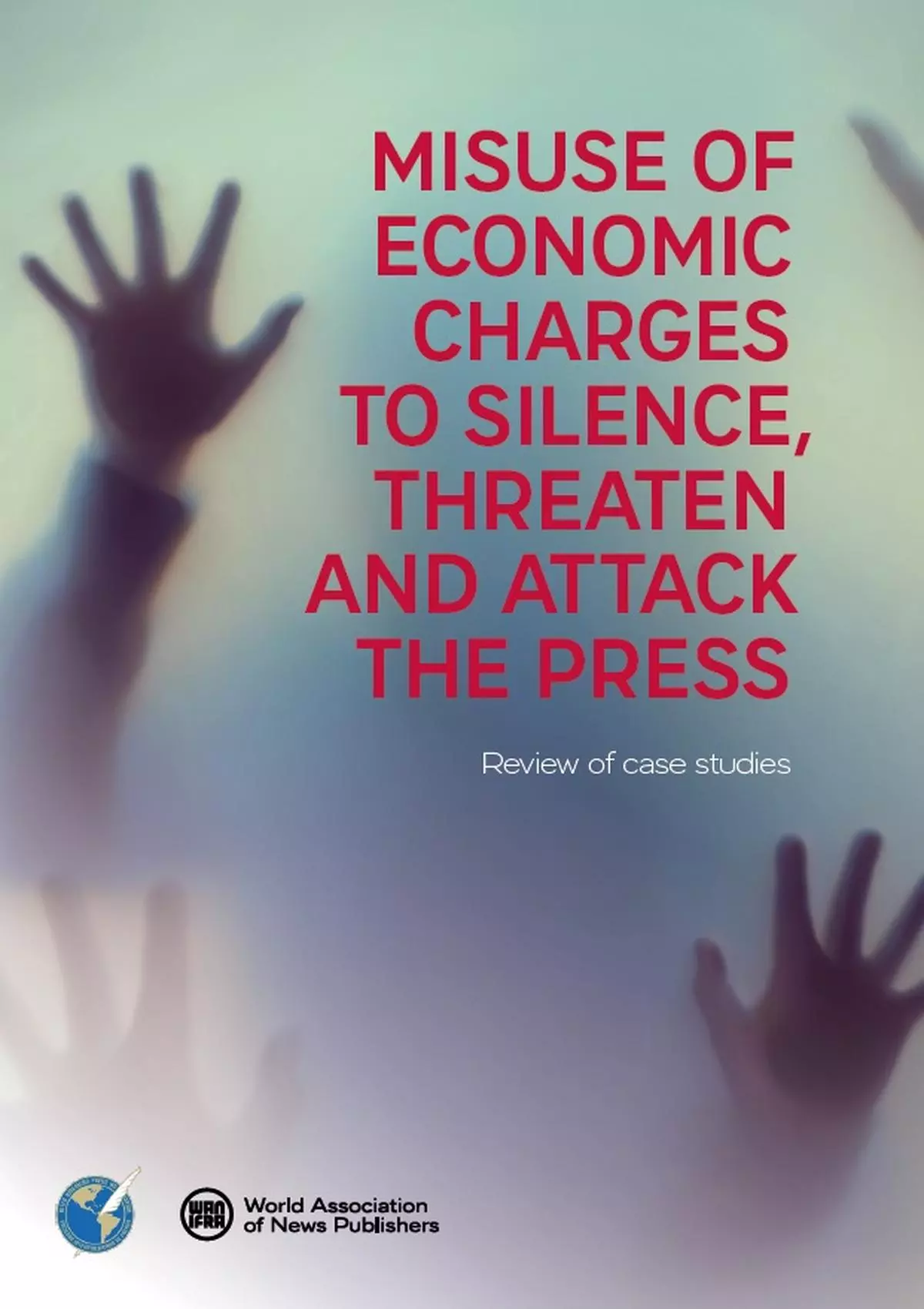
Citizens protest against the attack on press freedom and journalists at Freedom Park in Bengaluru on October 5, 2023. Major media outlets from eight countries face crippling investigations into alleged tax evasion and money laundering, leading to frozen assets, imprisoned journalists, and shuttered newsrooms.
| Photo Credit: SUDHAKARA JAIN
In an alarming trend across the globe, governments are increasingly wielding economic and financial crime charges to silence independent journalism, according to a new joint report by the Inter American Press Association (IAPA) and the World Association of News Publishers (WAN-IFRA).
The report, titled “Misuse of Economic Charges to Silence, Threaten and Attack the Press”, examining eight recent cases across different continents, reveals how authorities systematically employ tax evasion, money laundering, and other financial charges to paralyse media operations and discredit journalists. This strategy proves particularly effective as it circumvents traditional press freedom protections while carrying severe criminal penalties.
The release of this report coincides with mounting concerns over the arrest of Indian journalist Mahesh Langa, a senior assistant editor with The Hindu (Disclaimer: Frontline is owned by The Hindu Group). Initially detained in a GST fraud case despite not being named in the primary FIR, Langa now faces additional charges for possessing confidential government documents—a common requirement for investigative journalism. Leading press organisations, including the Editors Guild of India and Press Club of India, have condemned the action as a clear example of how financial and administrative charges are being weaponised against journalists performing their professional duties.
Also Read | Muzzling the press
“Financial crimes prove effective in silencing media and journalists as they do not require the need for a link to content produced and are not subject to the same international scrutiny as laws explicitly targeting media,” notes Andrew Heslop, Executive Director of Press Freedom at WAN-IFRA.
Several common patterns
The investigation highlights several common patterns. Authorities frequently freeze media outlets’ bank accounts during investigations, effectively strangling their operations. Criminal investigations often result in lengthy pre-trial detentions, while defending against complex financial charges requires costly legal and accounting expertise beyond most journalists’ means.

The report examines eight recent cases across different continents and reveals how authorities systematically employ tax evasion, money laundering, and other financial charges to paralyse media operations and discredit journalists.
In Azerbaijan, six journalists from Abzas Media face up to twelve years in prison on charges including illegal entrepreneurship and money laundering. The case exemplifies how governments time such crackdowns to precede major events–in this instance, ahead of both presidential elections and Azerbaijan’s hosting of COP29.
The report documents how El Salvador’s government used money laundering allegations to attack El Faro, a prominent digital news outlet, after it published an investigation into government negotiations with gangs. The mere announcement of the investigation caused the outlet’s advertising revenue to plummet by 150 per cent.
Perhaps most concerning is how these charges create lasting damage to journalists’ reputations. “A journalist’s best asset is his or her credibility, and these criminal charges undermine it,” says José Zamora, son of imprisoned Guatemalan journalist José Rubén Zamora, who faces money laundering charges.
“The global scope of these cases suggests a coordinated playbook being shared among governments seeking to control independent media.”
Nobel laureate Maria Ressa’s case in the Philippines demonstrates the comprehensive nature of such attacks. Beyond facing multiple tax evasion charges, Ressa and her news site Rappler encountered orchestrated online harassment campaigns and saw advertising revenue drop 49 per cent after initial government actions.
The study also reveals a disturbing pattern of authorities targeting journalists’ legal representatives. In Tanzania, investigative journalist Erick Kabendera’s lawyer had to temporarily flee the country after facing threats. In Guatemala, three of José Rubén Zamora’s lawyers were imprisoned on fabricated charges, while another was forced into exile.
Emerging tactics of targeting journalists
The report identifies several emerging tactics, including the misuse of anti-terrorism financing laws. In India, NewsClick faces charges under both money laundering and anti-terror legislation, allowing authorities to seize over 380 devices containing 14 years of journalistic archives.
Legal mechanisms originally intended to combat serious crime are being repurposed as tools of suppression. Both Tanzania and Guatemala have introduced plea bargaining systems that pressure journalists to admit guilt in exchange for lighter sentences, permanently damaging their credibility.
Also Read | Assault on NewsClick marks the lowest point for media freedom in India since Emergency
The global scope of these cases—from Hong Kong media mogul Jimmy Lai’s fraud conviction to Georgian broadcaster Nika Gvaramia’s money laundering charges—suggests a coordinated playbook being shared among governments seeking to control independent media.
According to WAN-IFRA’s “2023-2024 World Press Trends Outlook” report, 44 per cent of surveyed media organisations reported facing legal intimidation and retaliation over the previous year. The mounting legal expenses and time required to defend against such charges create what the report calls “psychological weariness”, effectively hampering journalists’ ability to conduct investigative reporting.
The report concludes that this trend represents a sophisticated evolution in press suppression tactics, one that exploits the complexity of financial regulations and criminal law to achieve what direct censorship cannot. As these cases demonstrate, the strategy proves particularly effective because it attacks both the operational viability of news organisations and the personal credibility of journalists themselves.



